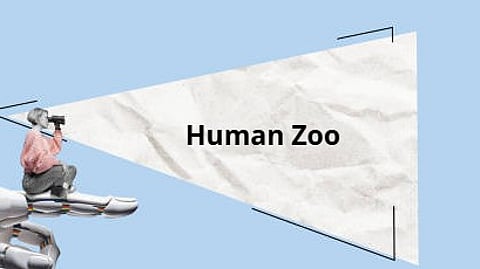

Human zoos, also known as "ethnological exhibitions," were a disturbing phenomenon that existed from the 19th to the mid-20th century. These exhibitions showcased people from non-Western cultures, often forcefully taken from their homes, and displayed them as curiosities or specimens for entertainment purposes.
Origins of Human Zoos:
The concept of human zoos emerged during the colonial era, with European powers seeking to assert their dominance over colonized peoples. These exhibitions were initially presented as scientific and educational, aiming to demonstrate the supposed superiority of Western cultures.
According to BBC report, this was initially fueled by curiosity, human zoos were later exploited by researchers to substantiate discredited racial theories, marking a disturbing shift from fascination to exploitation.
Exploitation and Abuse:
Human zoos involved the exploitation and abuse of people from various cultures, including Africans, Asians, Indigenous peoples, and others. Exhibitors would often manipulate or coerce participants into performing staged activities, reinforcing racist stereotypes.
Some of the most striking examples of human zoos showcase the shocking extent of this disturbing practice. The 1889 Paris World's Fair featured a Negro Village exhibition, displaying over 400 African people from various colonies. This spectacle was touted as a showcase of French colonial power and attracted millions of visitors.
The 1904 World's Fair in St. Louis, Missouri, took it a step further with the Philippine Village exhibition. Over 1,000 Indigenous Filipinos were forcibly brought to the United States and displayed as savages or primitive peoples.
Consequences and Legacy:
Human zoos had devastating consequences for those involved, including cultural disruption, physical abuse, and emotional trauma. This dark chapter in human history serves as a reminder of the dangers of racism, colonialism, and exploitation. It highlights the importance of cultural sensitivity, informed consent, and respect for human dignity.
In recent years, some countries have acknowledged and apologized for their role in human zoos. For example, Belgium apologized in 2020 for its colonial past, including the exploitation of Congolese people in human zoos.
Reference:
BBC News. The Shocking Truth: https://www.bbc.com/news/magazine-16295827
Jim Crow Museum at Ferris State University. (n.d.). Questions and Answers about Jim Crow https://jimcrowmuseum.ferris.edu/question
Journal of Educational Multimedia and Hypermedia (JEMH). (ISSN 1055-8896). Published by Ball State University https://openjournals.bsu.edu
(Input From Various Sources)
(Rehash/Neha Kamble/MSM)
